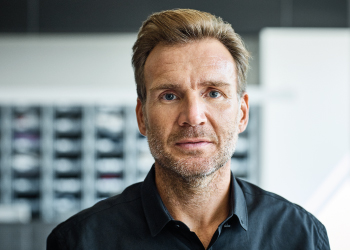For some people, using medication to quit smoking can significantly improve their chances of success. These medications can help relieve withdrawal symptoms (nervousness, irritability, depressed mood, increased appetite, etc.) and fight cravings. The result? You'll be less likely to relapse and your chances of becoming an ex-smoker will increase!
The medications presented on this page can also be used to help you quit vaping.

Three pharmacological treatments to stop smoking have been proven effective. Your pharmacist can help you choose the right medication for you. It is important to respect the treatment duration and directions for use of these products. When taken correctly, they are safe and do not lead to dependence.
NRTs are offered in the form of patches, gum, lozenges, inhalers and even mouthsprays (such as Habitrol, NicoDerm, Thrive and Nicorette).Treatment usually lasts 12 weeks, and it is recommended that you stop smoking before starting.
They are available over the counter at the pharmacy, but your pharmacist can also prescribe them so you can be reimbursed.
Available by prescription only, these medications don't contain nicotine. Rather, they act on the areas of the brain that are stimulated by nicotine. It is recommended that you start these treatments 1 week before quitting.
Your pharmacist or doctor can prescribe these medications, which are available by prescription only.
There are two types of NRT:
It is possible to combine the use of these two types of NRT. For example, a patch can be worn all day long, while oral forms (such as gum) can be used as a complement when cravings are strong.
It is important to choose a dosage adapted to your level of nicotine dependence. Consult your pharmacist.

Most pharmacological treatments to stop smoking are covered by the public prescription drug insurance plan or by private insurance plans.
The Régie de l’assurance maladie du Québec (RAMQ) reimburses NRTs (NicoDerm patch, Nicorette 2 mg gum and Thrive 1 mg lozenge) and bupropion for 12 consecutive weeks, once a year. Varenicline is reimbursed for 24 weeks.
A prescription from your pharmacist or doctor is necessary in order for you to be reimbursed. Ask one of these health care professionals about how to request a reimbursement.
Although their objective is to help reduce and alleviate a number of symptoms caused by withdrawal from nicotine, pharmacological aids can also have certain side effects in some people. Among other things, they can cause nausea, sleep problems and headaches.
Feeling unwell because of withdrawal can be confused with certain side effects associated with pharmacological aids. If you are experiencing symptoms that bother you, consult your health professional to discuss the matter, rather than abandoning your treatment.